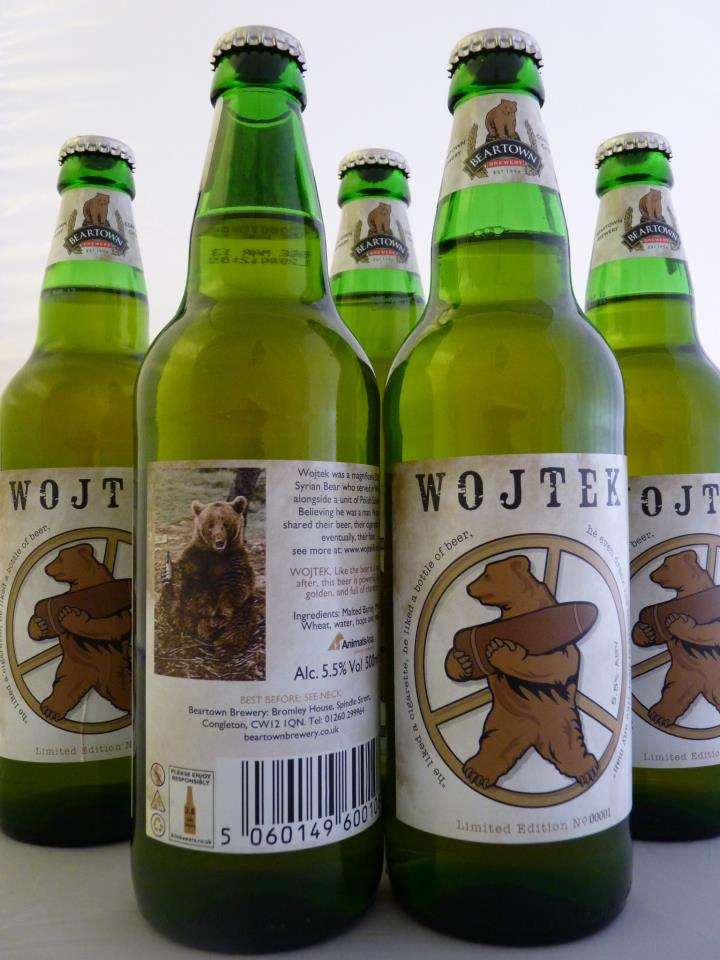
Photo - Bearhouse Brewery
WOJTEK, which was conceived as a limited edition product by the regional Beartown brewery in the English town of Congleton, Cheshire, was inspired by a Syrian bear (Wojtek) who was the beloved mascot of a Polish artillery company.
Bottles of the beer are emblazoned with the image of the bear carrying an artillery shell, the distinctive symbol once proudly sported by soldiers on their company insignia.
The beverage has been plucked from relative obscurity after becoming a regional winner in the “Great British Beer Hunt” that is being hosted by the Sainsbury's supermarket chain.
WOJTEK will go head to head this month with 19 other local beers from across Britain.
“This year's Great British Beer Hunt has uncovered some fabulous quality, regional beers that we're delighted to bring to our customers on a national scale,” enthused Nicky Millington, a beer buyer for Sainsbury's.
According to the supermarket, WOJTEK beer is “a powerful, deep golden beer,” that's “full of character” and “tremendous with spicy sausages.”
The ultimate winner will be decided according to which of the twenty brews sells best at Sainsbury's outlets across Britain over the next three weeks.
None of the beers has been sold by the supermarket before, and Beartown brewery has rustled up a special consignment of 20,000 bottles for the final showdown.
Wojtek the Soldier Bear
Wojtek the Bear was purchased as a cub in 1942 while the Polish Second Corps was stationed in Iran as part of the British 8th Army.
The bear became a full-fledged member of the 22nd Artillery Supply Company, sleeping in soldiers tents (until he was too big to do so), gobbling up cigarettes and indeed drinking beer.
Legend holds that during the Italian campaign, he carried boxes of artillery at the hard fought Battle of Monte Cassino.
Regardless of whether the missile-carrying antics are true, Wojtek became the official symbol of the artillery company, and an image of the bear was sported on the unit's trucks, likewise on company badges.
After the war, the vast majority of the 2nd Polish Corps refused to return to Poland, as Stalin's Red Army had occupied the country, leading to almost half a century of communist rule.
The 2nd Corps was largely made up of men who had been interned in Soviet labour camps at the beginning of the war (many were freed by an amnesty in 1941), and the soldiers had few illusions about life under a communist regime.
Wojtek himself ended his days at Edinburgh Zoo. A statue of the bear was recently proposed for the Scottish capital. (nh)